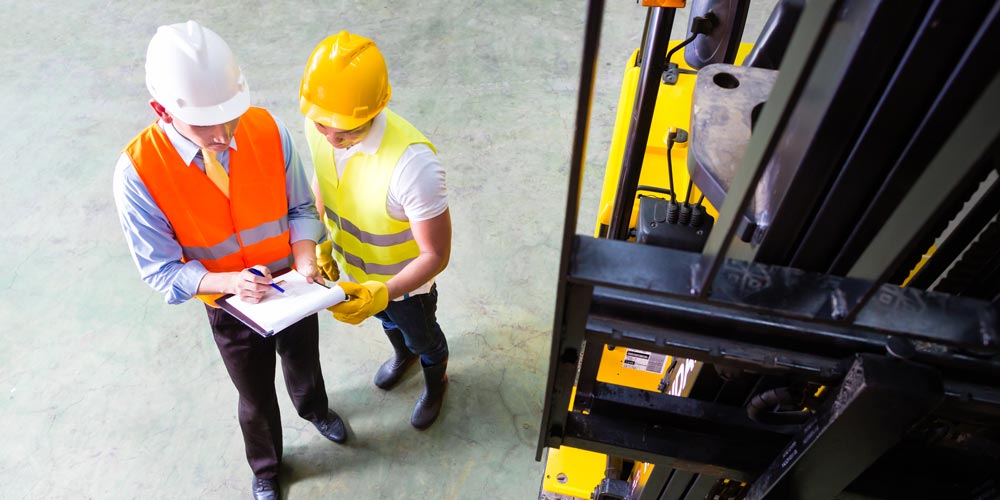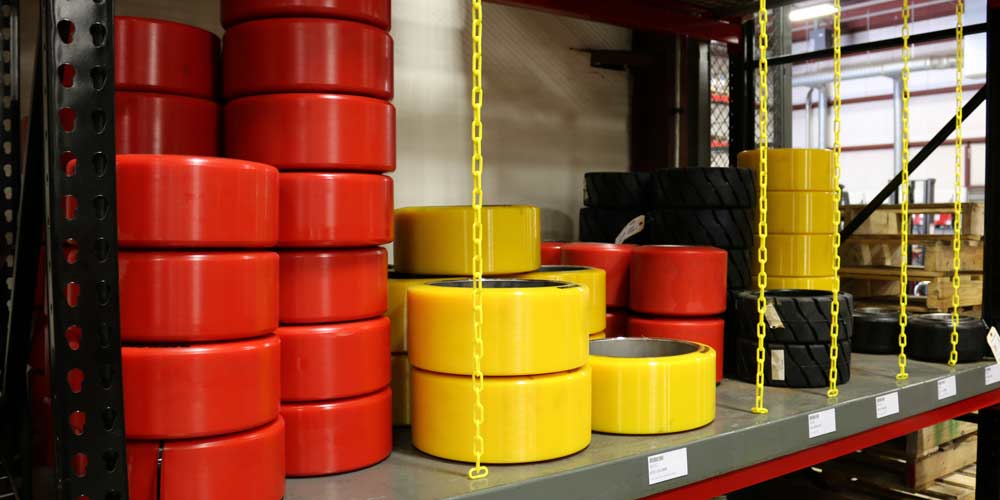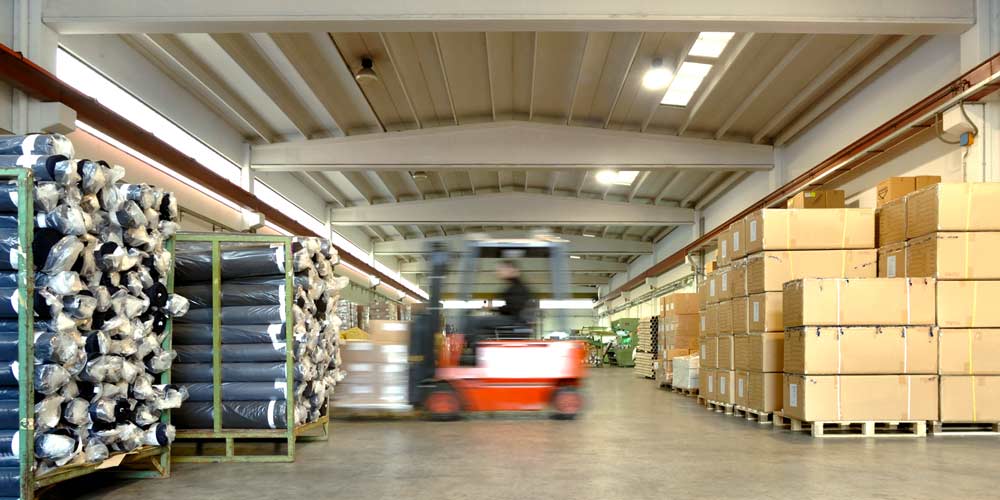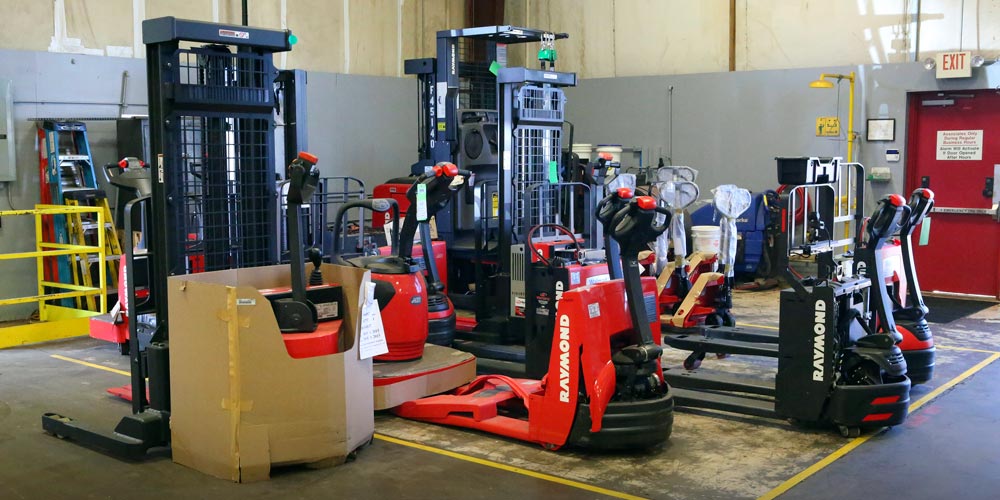Forklift Maintenance: A Guide to Best Practices
- share

Your warehouse is likely in a state of constant activity, as well as seasonal change.
But to keep things in your operation productive, efficient and safe, it’s important to take time to properly service your forklifts and material handling equipment.
Your forklifts are an investment. Make sure they go the distance by sticking to a regular maintenance plan. Review our Top 10 Best Practices for maintaining your forklifts, and find out how Carolina Handling can help you keep things running smoothly.
Top 10 Forklift Maintenance Best Practices
-
Follow the manufacturer's service schedule.
This is typically every 90 days or 100 hours. Keeping parts regularly serviced and updated helps keep small issues from turning into bigger (and likely more expensive) problems. -
Do daily checks.
Have operators quickly check basic parts and ensure everything is in working order before they begin using the forklift. If there’s an issue, report it right away. -
Keep it clean.
Clear debris and dirt from around the radiator weekly, to prevent potential overheating. Clean off corrosive substances or substances that may be impossible to remove once hard or set, like cement, right away. -
Check hoses.
Hydraulic hoses can crack, split, or weep, causing equipment failure when levels drop too low. Replace any damaged hoses at the first sign of stress. -
Watch for tire wear.
If forklift operators work in a repetitive pattern (e.g., always turning right), rotate tires regularly to keep wear even. -
Raise the forks before traveling.
This prevents forks from scraping or dragging on the ground, which cuts down on wear and tear and fuel waste. -
Charge batteries on a schedule.
Setting up a charging routine helps extend battery life versus frequent “topping up,” which has the opposite effect. -
Set a speed limit.
Lift trucks are not meant to travel fast, and may require different speeds for different operations. As a general guideline, go 3 mph in racking, 5 mph in transit aisles, and 10 mph in the yard. -
Don't forget about fumes.
Operating in a confined space can increase the risk of toxic fume build up. Make sure to open windows or install fans if using forklifts in small or unventilated areas. -
Make time for training.
For the safety of your operators (and all your employees), regular training and certification is essential. This may also be a requirement for insurance coverage.



Bonus tip: Turn to the experts
While the above tips are important, the best practice of all is having your routine maintenance performed by a qualified technician. Carolina Handling has a variety of Fleet Service and Fleet Management programs to meet the equipment maintenance needs of your warehouse, whether big or small. Contact us to learn more.


